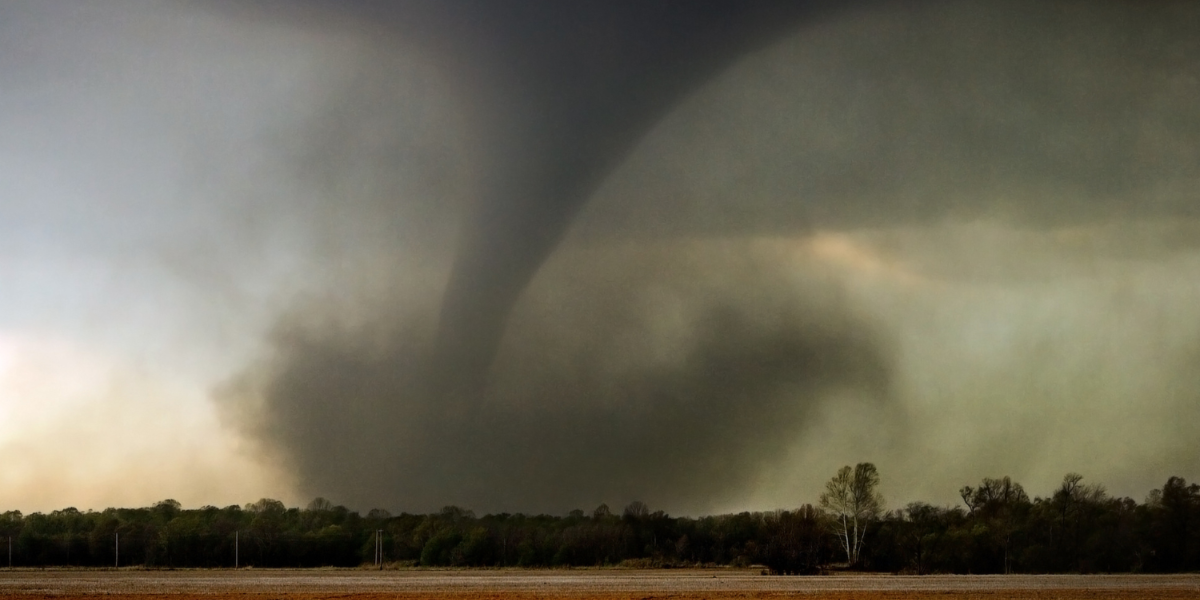Truck Driver Talk: Tornado Safety

Hello spring, and hello tornado season. Although tornadoes can pop up anywhere at any time, they are quite common during the months of March through May in the Southern part of the United States. For truck drivers, spring storms can cause numerous challenges on the road. At Lee-Smith, we want every truck driver to always make it home safely. To help make this happen, we’ve put together a list of tips to help drivers safely navigate spring’s severe weather.
Preparation is Key
No matter the season, it is important to have an emergency kit in your truck just in case you find yourself in a serious weather situation. The National Weather Service says your kit should include a blanket, flashlight with batteries, non-perishable food items, water, first aid supplies like bandages and alcohol wipes, a NOAA weather radio, a change of clothes, a fire extinguisher, and a dust mask. Every day before you hit the road, check the weather forecast for your route. Keep in mind that tornadoes can occur at any hour, but they are most common between 4 pm - 9 pm. Night tornadoes are especially dangerous since you cannot easily see them. We encourage fleet owners to make a severe weather plan for their team so that their drivers know what to do if they will be traveling in an area where bad weather is forecasted.
Know the Difference: Watch vs. Warning
Do you know the difference between a tornado watch and a tornado warning? The best way to remember what sets these two apart is to picture a taco. With a tornado watch, you have all of the ingredients to build your taco, but you haven’t done so yet. In other words, all of the ingredients needed for a tornado spin-up are there. Drivers traveling in areas where a tornado watch has been issued need to stay alert and listen to a weather radio for updates. We also recommend that drivers stay in communication with dispatch because they will be able to provide additional information. If a tornado warning is issued, the taco has been assembled and is ready to eat. In weather terms, a warning indicates that a tornado has been spotted.
Tornado Warning Safety
Being on the road when a tornado warning is issued can be frightening. Drivers need to take immediate action for their safety. The best-case scenario is for a driver to find shelter in a FEMA storm shelter or a well-built building like a hotel, restaurant, or truck stop. Some buildings are also built with a storm shelter. However, if you are in a location that does not have one, then go to a room on the lowest floor that is away from windows. For drivers who cannot find shelter, there are a few other options. In a worst-case scenario situation, riding out the storm in the lowest part of a ditch can save your life. Make sure to cover your head with your arms to protect yourself from flying debris. We do not recommend staying in your truck. However, if you cannot safely leave your truck, then squat down on the floor and cover your head.
What Not to Do
You may think that an overpass or tunnel is a good place to ride out a tornado, but it is actually extremely dangerous to be in either of these locations. Since both are open-air structures, the winds will be stronger. You will also be more susceptible to flying debris. Avoid parking your truck under an overpass as this can pose a problem for emergency vehicles that need to get through. Also, do not try to outrun a tornado. This weather phenomenon is unpredictable and can switch directions in the blink of an eye. If you can see that the tornado is far away in the distance and the traffic around you is not heavy, NOAA says you may be able to drive to safety by driving at right angles away from the tornado. However, this can be risky.
One Last Word
No one wants to find themselves on the road during a tornado warning. However, in the event that you do, please take extra precautions to stay safe. We want you to make it back home to your family. If your truck sustains any damage during a storm, our Collision Center team is here to help. Give us a call at 423-648-6434 or visit our website for more information. Please stay weather alert and safe while on the job this spring!
